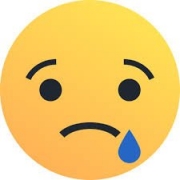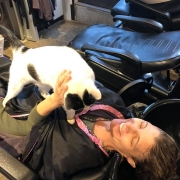My mom died penniless, middle-aged, and alone. She was found dead on the streets from an overdose of amitriptyline- meds prescribed to calm her nerves not kill her. She should never have wound up in this condition.
She never should have died poor, let alone- alone. She was raised in a middle-class family and worked for over twenty years at a university where she should have been receiving a pension. She owned her home, worked very hard, was frugal, and also inherited some money from an uncle. How then did this happen?
What steered her off course from a modest but secure retirement? And what left her thinking she had no way out and no one in the world to whom she could turn?
My mom had a dependence on alcohol that led to years of isolation and eventual incarceration for felony DUIs. She lost her job, her assets, and poured money down the drain in restitution fees. She also failed to learn about investing, so even though she had a money manager, she didn’t know how to manage her accounts or to adequately leverage them.
With or without an addiction problem and depression and anxiety, my mom wasn’t so different from a large number of Americans. Many of us are only a few paychecks away from homelessness. While money isn’t everything and you can certainly struggle emotionally even when you have it, poverty has always been a risk factor for mental illness. And as more and more Americans struggle to make a basic living, we are seeing increases in anxiety, depression, and suicide. We are also seeing a rise in loneliness and feelings of futility.
It will be increasingly important to look at the intersection between mental wellness and financial stability for there is a direct correlation. I grew up with parents who did well financially but who lost everything due to emotional instability. My father, who was a successful lawyer, was disbarred due to drug addiction. And I’ve described my mother’s trajectory from security to helplessness and despair.
But what of Americans who are mentally well but not financially stable? What of Americans who despite working harder and harder find themselves spinning their wheels in financial mud? This constant sense of disempowerment threatens self-esteem, one’s sense of control, and one’s place in the world.
All of us are vulnerable to financial instability, if we do not make financial literacy a priority. We are even more at risk if we are alone, don’t make a great salary, or don’t come from privilege. The old ways of working for a pension and being able to retire simply by working hard and being loyal to a company are gone. If we as a nation don’t address this issue, we will see more and more people aging with a sense of hopelessness and despair. If we as individuals don’t realize we have to find a new game plan, we will fall short of how we want to live.
In addition, we need to work on our mental health because regardless of our financial status, it is vital to financial solvency. Mental wellness is its own form of wealth. We must be well emotionally to function, problem solve, learn, grow, work, and to develop community with others.
To that end, let’s look out for ourselves and for each other. Let’s have empathy. Let’s understand all the factors at play. Let’s educate and empower each other, particularly those in need and those less fortunate. Let’s connect and support, for no one should have to die on the streets ashamed, lost, and alone. I want no one to have the tragic ending that my mother did.
The post Money Matters in Mental Health appeared first on Selfish Bitch of a Daughter.
Source: Selfish Bitch of a Daughter
Money Matters in Mental Health








